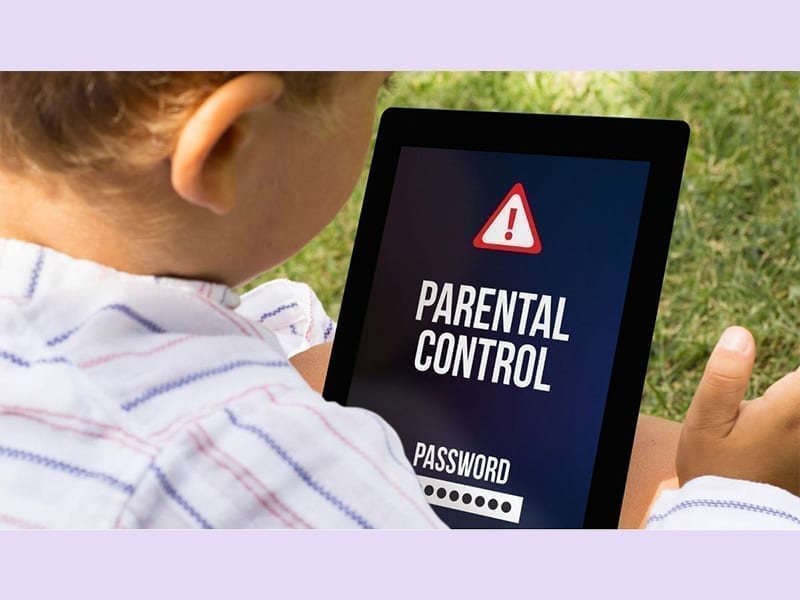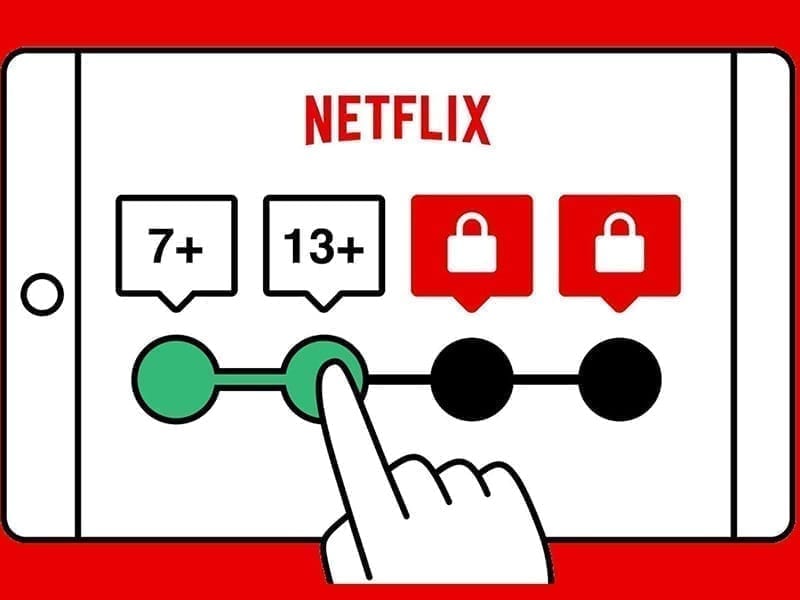According to India Today, a teen spends an average of 9 hours every day on digital media. Remember when we didn’t even have mobile phones? Back then, pagers seemed like a life-changer!
Well, needless to say, digital devices have taken over our lives and with every kid having access to a flurry of unfiltered information at the click of a button, parenting has never been harder. So, how do you ensure you’re protecting your kids from the World Wide Web? How do you ensure that in the digital age, personal communication doesn’t become a thing of the past? Honestly, there is no one right answer. A combination of actionable tips may work well for your family and we’ve got some ideas on what you can do.
The Harmful Effects Of Too Much Screen Time For Kids
While there is a lot of age-appropriate content and educational apps that can be accessed through devices, using one for too long can have harmful effects on your child.
Studies have shown overuse of gadgets from an early age can hamper children’s academia as it causes poor concentration, underdeveloped language skills, and lack of creativity.
Also, you can’t always be sure what they have access to. Oftentimes your child is exposed to violence and sexualisation on digital gaming portals, much before they’ve come of age.
It’s Not Just Mental, It’s Medical
A host of medical problems related to the over-use of smartphones and other gadgets are already under study. These include, but are not limited to:
- Increase in number of thumb injuries like Tenosynovitis (inflammation of tendons due to exertion and overuse)
- Increasing cases of headaches and migraines occurring in children
- Neck, shoulder and back problems from incorrect postures for sitting in front of the screen too long
- Eyesight issues from staring into the blue light (display screens) for long hours
- Insomnia and other sleep disorders
- Anxiety and depression
- Poor attention spans
- Hearing problems
- Childhood obesity
Experts are also still studying the risk of cancer from radiation-exposed from gadgets
10 Parenting Tips For Generation Z (Also Known As iGen)
The ‘Bois Locker Room’ incident and a similar case in an ‘elite school in Mumbai’ where young teenagers are talking about gang rape casually have made it more evident than ever that parents need to protect their kids in the digital age. Here are some basic tips to help you get started:
1. Raise Compassionate Teenagers; Condemn Bullying

Every parent talks to their kids about bullies on how to deal with them if a situation arises. But, very few will actually explain to their kids that they should not be a bully. Teach your kids the importance of respect, irrespective of age, gender, size, race, colour, sexuality and religion. Discourage them from talking behind their friend’s backs, and mindless teasing and joking at the expense of others.
‘Roasting’ and ‘trolling’ are new generation words, which means ‘to insult people’. It is a form of cyberbullying and often, your 13-year-old Instagram influencer kid may be a victim of it.
The rate of suicide among teens and young adults is increasing alarmingly and the main cause is cyberbullying. Teen victims of cyberbullying are often angry, agitated and depressed. This may seem like normal teen mood swings, but it is best to try and talk it out with them. If your child is a victim, contact a professional to help them and involve the school/college authority once you have all the facts.
2. Keep Ego & Self-Esteem In Check

Social media has made bragging very easy and this often disturbs young minds. ‘Showing off’ your new gadgets, sneakers, or the latest trip you took by putting it up on social media can ignite jealousy and depression in children who can’t have those things.
On the other hand, it can even give a superiority complex to the ones who have it. Refrain from overindulging your kids with material things. It misplaces the value of what’s really important in their already superficial hyper-digitised lives.
Self-esteem is another important aspect that gets distorted by social media. There is a lot of shaming that takes place online that can affect a growing child’s self-esteem. From gender to race, to sexuality, to body type, everyone is pointed at and humiliated. We can teach our children to not be a bully but there are always going to be others that we cannot control. Talk to your child about individuality, and teach them how to appreciate their uniqueness and love and value themselves.
Teach them to be happy in real life, not just for the internet.
3. Social Media & Screen Time

A new line of careers for kids as young as 4 and 5 years has opened up in the age of social media. (Have you seen Ryan’s World on YouTube?) Welcome to the age of influencers. As the name suggests, they’re supposed to have the power to influence people and your child could be the next influencer in a hot digital minute.
This poses a problem not just for kids who become influencers, but those who get influenced too. Can you imagine your 13-year-old getting lessons about what’s a must-have (usually a new beauty or fashion product) from another 13-year-old on Instagram?
Also, pre-teen kids are often intimidated by their peers for ‘not having a life’ if they don’t have a smartphone or if they aren’t on social media.
So, what can you do as a parent?
- Try and delay giving your kid access to a digital device for as long as possible
- Be updated on the social media platforms they use and the nature of the content on those platforms.
- You can restrict the number of platforms they’re allowed to be on.
- You should monitor their feed and the groups they’re part of to ensure they’re not posting or consuming content that isn’t age-appropriate.
- Limit screen time on digital devices to 1-2 hours a day. All smartphones have the option to limit the time on each app.
Additionally, be sure to give your kid a reality check about what’s really important in life. Talk about self-worth and empathy towards others. Create a safe and open environment for dialogue in case they feel overwhelmed or threatened by the online world.
4. Keep Your Child Busy

An increasing number of kids have become lethargic and inactive in the digital age. They would much rather play video games or stream movies than go out with their friends and indulge in some sporting activities. Encourage exercise during family time so that they get some physical activity. Help them discover their passions. It could be a sport, reading, music, photography. Once they show inclination, offer to sign them up for regular classes to nurture their talent.
5. Use Technology To Bond

Screen time doesn’t have to necessarily be alone time. Movie marathons, watching old family videos, and making it a tradition to catch sporting events together are great ways to make screen viewing a time to bond. Also, take an interest in your kid’s activities. Asking them to teach you the game they’re playing can actually prove to be very encouraging. Children often open up and create positive memories about the experiences in their minds. You could be their gaming partner every Sunday, for an hour or so. Or you can just make them listen to some audio stories. Short moral stories or fairy tales can be a good starting point if your child is young.
6. Take Control Of Wi-Fi & Devices

Don’t always keep the Wi-Fi on. If your child needs to use the computer, they can ask for permission and explain why they need it. This will give you control.
Giving your kids privacy is a good thing, but you can always control that too. Put passcodes for certain websites and apps. Keep a downtime during their academic hours and a regulated screen time during the rest of the hours, so they don’t exceed their usage. Keep the bedroom a screen-free zone; sleeping with a phone in hand and waking up to it again is unhealthy. This will affect the quality of their sleep. So, charge the devices outside their room. A screen-free bedroom can be made applicable to all members of the family.
Set boundaries on the usage of devices. For instance, using phones/tablets only after finishing their homework or prohibiting the use of phones/tablets an hour before bedtime. These rules can be altered as per the age of the child.
7. Make The Dining Area A Screen-Free Zone

Many parents often use phones, tablets and TV to distract their crying infants and toddlers who may be fussy about eating their meals. The kids are over-stimulated by the visuals and passively eat what they’re being fed.
While this may feel like the only way out, try and avoid it as much as possible. It gets children addicted to devices and screen lights at a very young age. It also affects their ability to control emotions in the long run. They need to learn how to identify their emotions like boredom and hunger and how to manage them. Use methods like storytelling or making eating a fun game to keep them interested.
This also means that adults should turn off the TV and keep their devices away too. Kids learn by example, after all.
8. Answering Questions About Sex

Do not yell, shy away or make it awkward to talk about sex. If you do not give them the answers, they will find another way to get them. The Internet is a dark place for a child and you do not want them to go looking for answers there. Whatever doubts they have, answer them truthfully. If you are worried or confused, there are many parenting books and videos regarding what to answer depending on the child’s age. But, honesty is the best policy here. No child is going to believe that a stork or an angel delivered a baby to your doorstep. Teach them male and female reproductive body parts just like you would teach them ears and nose. The more normal you make it sound, the less curious they will be.
9. Warning Pre-Teens & Teens About Threats

Children need to know and understand the threats of being online. Explain how ‘making profiles private’ doesn’t really make it private, that every image, text, and thought shared online is out there for anyone to use. Even if you delete it from the device, once shared you can never really delete it. This would be a good time to explain to them the risks that come with sexting and sharing inappropriate pictures with friends/boyfriends.
Inform them about the dangers of hackers and sexual predators and how they use fake profiles on email, social media, and online games to interact with innocent children.
10. Be The Role Model

It is so easy to get addicted to the digital world irrespective of our age. But children watch what you do and learn. Don’t humiliate anyone in front of your kids to ensure your kids don’t think it’s appropriate to shame people online or offline. While driving, do not pick up your phone to check your notifications when you are at a red light. Be the person you want your kids to become.
Every child is unique. A few kids will use their time allowance on tutorials to hone new talents; others will watch the same episode over and over again. Some teens will use social media to follow celebrities, and some will use it to only interact with close friends. Parent them based on their uniqueness.
Kids will make mistakes, ensure that it is dealt with patience and understanding. Make mistakes a teachable moment. Remember, if they do something wrong or they’re in some kind of trouble, you should want them to be comfortable coming to you for help.
Appreciate them if they abide by their screen-time restrictions. Any adolescent that survives the digital era without any mishaps should win an award! Additionally, keep your eye for red flags like bullying and sexting and get them the professional help that they require.
Even in the digital age, face-to-face conversations and social bonding with friends and family are still the most meaningful interactions, and that’s what you want to keep reinforcing in your child.


